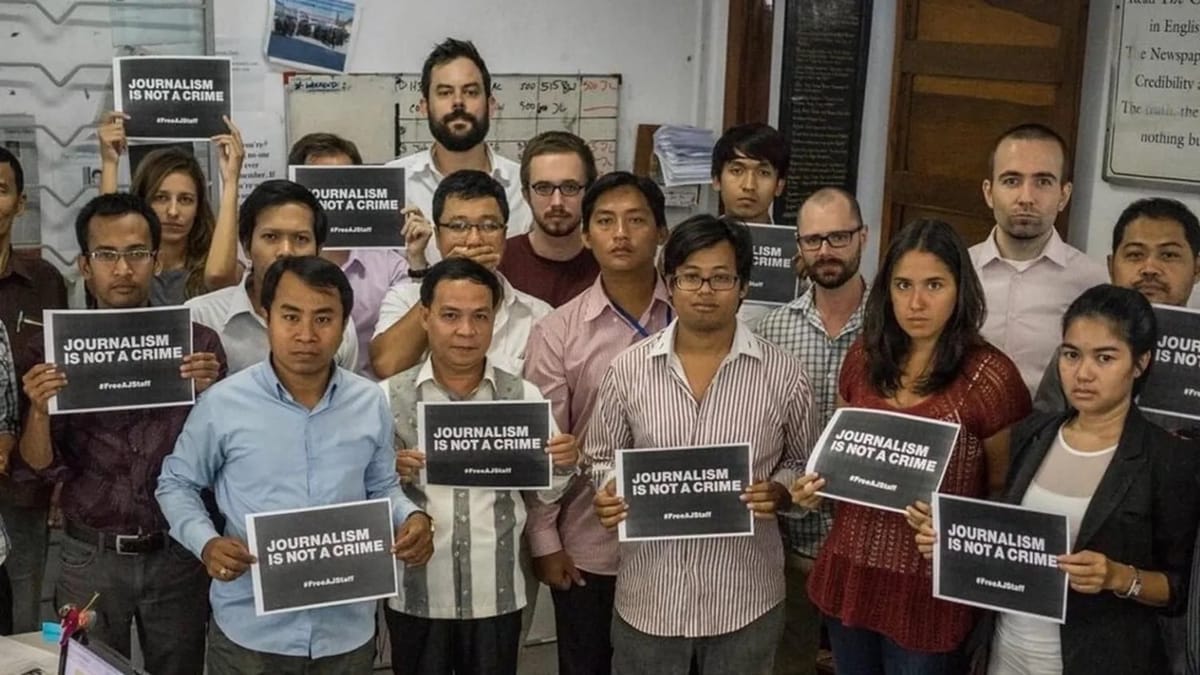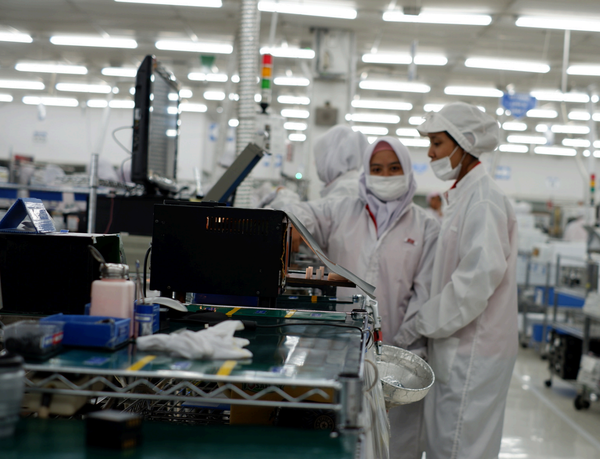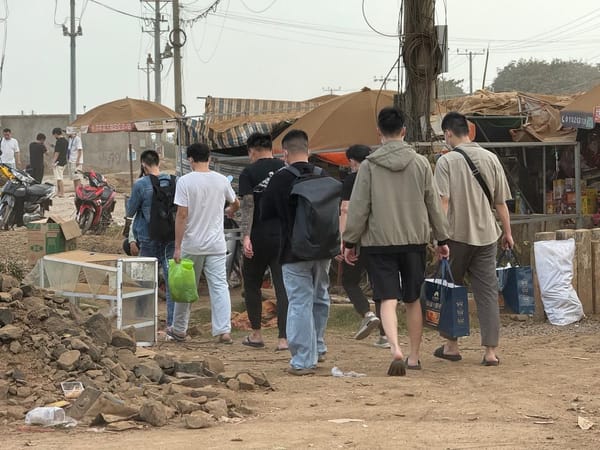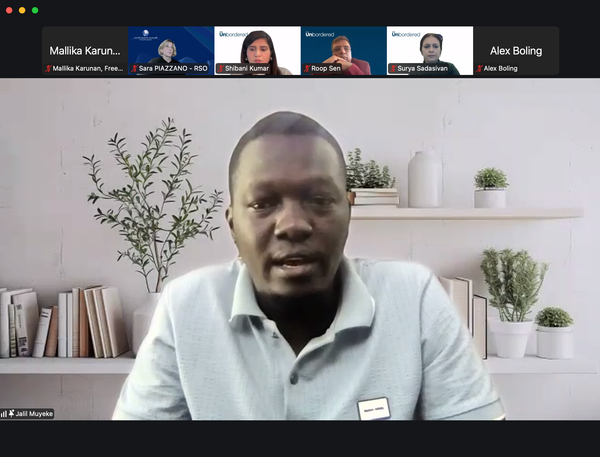Rights groups and others call for urgent global efforts to secure the release of Mech Dara

The arrest of Cambodian journalist Mech Dara causes international outcry, the Thai Government opens an identification center for trafficking victims, and a report examines human rights risks in Mexico’s clothing supply chains.
Award-winning Cambodian journalist Mech Dara has been charged with “incitement to disturb social security” over his social media posts and placed in pre-trial detention following his shock arrest yesterday, according to the Cambodian Journalists Alliance Association (CamboJA). Dara, who reports extensively on human trafficking into cyberscam compounds in Southeast Asia and related corruption, was apprehended while traveling with family from Sihanoukville to Phnom Penh. The arrest has alarmed human rights groups, international organizations, activists and journalists who praised Dara’s fearless investigative reporting. His work was recognized last year with a U.S. Department of State Hero Award.
Working freelance following the shutdown of Cambodia’s independent media outlets, Dara had posted an image on social media the day before his arrest that purportedly showed a tourist site damaged by a quarry operation. Local authorities described the report as “fake news” while calling for Dara to face punishment. Three weeks ago, the U.S. imposed sanctions on businessman and senator Ly Yong Phat regarding his suspected involvement in online scam operations and human trafficking – Dara’s reporting included stories for Voice of Democracy, a publication now shuttered after government pressure, linking Phat to scam compounds.
While the linkages between the Cambodian ultra-elite and the criminal syndicates that operate scam centers are well established today, none of this was understood until local journalists and activists gradually pieced the story together, notes Jacob Sims in The Diplomat. “None told that story more doggedly or at greater personal risk than Mech Dara… It is not an overstatement to suggest that anyone who today reaps vocational benefit from their ‘industry expertise’ on Cambodian crime networks or trafficking patterns owes a significant debt to Mech Dara.”
Dara’s arrest comes amid increasing concern for on-the-ground journalism in Southeast Asia, particularly given the expanding reach and sophistication of trafficking-fueled scamming operations based in the region. Local journalists are uniquely qualified to research and monitor trends regarding this ever-evolving criminal activity at ground level and raise awareness of developments, acting as a valuable early warning system for emerging patterns in forced criminality. In the late 2010s, long before the online scam industry appeared on the international media’s radar, local Chinese-language journalists and bloggers were the first to spot unusual social media posts from young Chinese people calling to be rescued from exploitative workplaces in Cambodia and elsewhere in Southeast Asia.
When scam compounds first appeared, local media reports were an invaluable tool used by our forced criminality working group members to alert authorities to the issue. Even as “pig butchering” scams hit the headlines internationally, local reporters have remained uniquely placed to cultivate sources of information, get access, check facts, and track changes in the criminals’ modi operandi. However, whilst local media has paid close attention to developments, international media outlets have tended to favor well-worn narratives which fail to reflect the fast-changing dynamics on the ground – a paucity of information which can hinder international efforts to tackle the problem.
Reporters based in the Southeast Asia region face an array of risks and challenges, however, Foremost is the very real threat to their personal safety, particularly given that crime bosses, wealthy backers, and complicit government officials are determined to insulate their lucrative businesses from press exposure. The scamming industry is also very opaque, with many operations being entirely unregistered and unregulated. Another barrier to reporting is the fact that governments in many countries, including Vietnam, Thailand, and China, have taken steps to silence the voices of independent journalists. In Cambodia, they are often classified as opposition party members, curtailing their activities. The UN has called for the suspension of Cambodia’s recently launched Journalism Charter (August 2024) which could be used by the government to suppress free speech.
Yet broadening media coverage of the scam industry is a crucial part of the response, and journalists should be protected from threats and be free to hold their governments accountable without fear of imprisonment. Independently awarded financial grants could help support reporters in the region to pursue stories, while collaboration between local and international journalists could be enhanced, helping ensure that local journalists receive due credit for their difficult and dangerous work, and that any stories published internationally accurately reflect the situation on the ground.
Meanwhile, CamboJA has led calls for authorities to release Dara and demonstrate to the international community “that Cambodia respects citizens’ fundamental rights to freedom of expression and freedom of the press”. The U.S. State Department is aware of reports of Dara’s arrest, a spokesperson said, adding, “we are following developments closely with great concern”. Yesterday, in an unprecedented move, the White House announced Trafficking in Persons sanctions against Cambodia and other countries with a Tier 3 ranking in the 2024 TIP Report.
Here’s a round-up of other noteworthy news and initiatives:
At the conclusion of the UN General Assembly’s 79th session yesterday, ministers and delegates emphasized the need for a just global order, equitable resource distribution, and global financial reform, while decrying the ongoing unilateral actions that undermine the dignity and development of poorer nations. Drawing attention to the escalation of violence between Israel and Hezbollah in Lebanon, Philémon Yang, president for the current session, called on all parties to urgently conclude a ceasefire and for countries to desist from supplying weapons to the region.
Following the Money II, a Special Issue of the Anti-Trafficking Review, attempts to examine funding and spending on efforts to stop human trafficking, particularly by the United States, the UK, and the EU. Featuring articles from academics, non-governmental organizations, and survivors of trafficking, the edition explores where the money comes from, who it goes to, and what it actually achieves.
The Thai Government has opened the Thailand Victim Identification and Referral Centre in Don Muang district, in a bid to boost the country’s reputation and elevate it to Tier 1 in the U.S. State Department’s TIP rankings, according to the Bangkok Post. The center was established following implementation of the country’s National Referral Mechanism, and serves as a temporary shelter for victims.
A report from the Business & Human Rights Resource Centre examines how Mexico’s leading apparel companies address human rights risks in their supply chains, identifies key labour risks in the industry, and analyzes the human rights policies of the major parent companies behind the country’s top apparel brands.
An EU-funded migrant rescue center is set to open in Libya, despite evidence of attacks on migrant boats by the Libyan Coast Guard (LCG) and abuse and killings in migrant detention centers on Libya’s shores. While human rights groups agree that Europe has a moral responsibility toward migrants and refugees, they also argue that deepening support for entities such as the LCG “does more to undermine that obligation than forward it”, says this article in Open Democracy.
Global Fund for Children will host a webinar on 24 October, 10:00 to 11:30 EDT, on its flexible funding and the ways in which it has evolved to be more inclusive and participatory with community-based organizations and young people. The dialogue-based session is aimed at funders, intermediaries, and INGOs.
The Modern Slavery and Human Rights Policy and Evidence Centre has issued a funding call for research into effective approaches to the prevention of modern slavery, aiming to generate new evidence. It intends to fund up to two projects to assess or evaluate interventions and demonstrate their effectiveness – one to look at the prevention of modern slavery before it occurs, or at an early stage, and the second on prevention of re-exploitation/re-trafficking.




